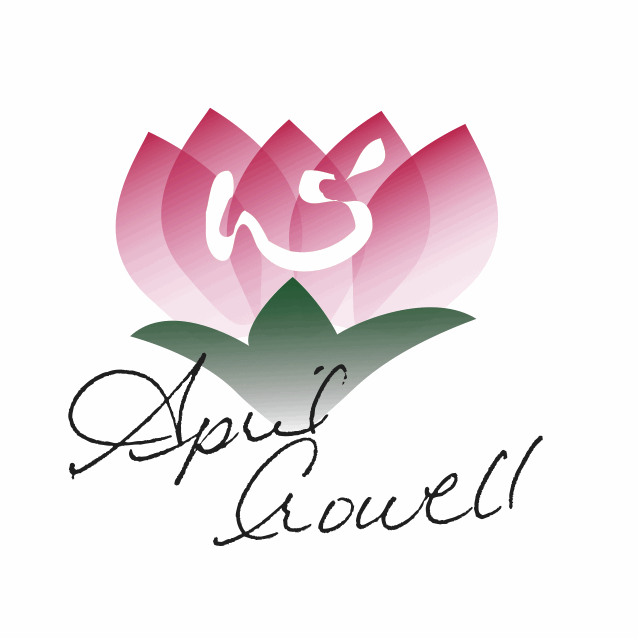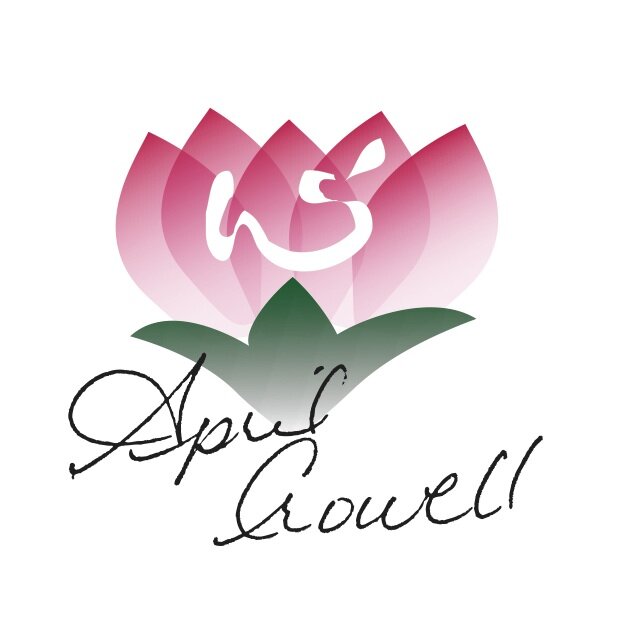Building Qi
Despite what you might believe, you are not the Energizer Bunny - and you will not keep on going and going and going. Even though some of us have a lot of energy, others do not. Those with great energy, still have to take time to recharge, or to rebuild Qi. An abundance means that you can bound to the top of the stairs without gasping for breath. You rise from bed feeling refreshed and ready for the day. There's a spring in your step. If this doesn't sound like you, and you are exhausted, weak, have low immunity and energy, you are likely Qi deficient.
Qi can be a tricky concept to understand. Sometimes translated as energy, material force, matter or life-force - Qi is all of these, yet none of these terms completely encompass the meaning of Qi. Why? Because the very nature of Qi is ever changing, shifting from one thing to the next, sometimes rapidly, sometimes very slowly. We identify or label Qi according to the job it is doing at the moment - meaning its functions, not structure. Huh? Let's expand.
Qi is everything and Qi is ever changing. Qi can be as elusive and rarefied as a thought and as dense as the ground beneath your feet. Even the character for Qi - a cauldron with fire below and steam rising off cooking rice - represents both material and immaterial. Energy turning to matter and matter turning back to energy...sound familiar?
Qi in the body is no different. We label it depending on what it is doing. Wei Qi (Defensive Qi) is one of the finest Qi forms in the body. It moves quickly and hangs out in the exterior of the body. Bones are a manifestation of one of the densest forms of Qi in the body. Blood and lymph fall into the middle of the spectrum. Our bodies are a condensation of Qi in varying forms. How we recognize each other - the form that I recognize as you- is a consolidation of various forms of Qi. Upon death that Qi disperses as spirit while the flesh dissolves to another form of Qi (earth and minerals).
Great, April...so what does Qi do?
Remember Qi is identified by what it is doing or "hat is wearing" - its current function.
Qi in regards to the human body has 5 major functions - Qi protects, warms, holds, transforms and transports. Without a long lecture, let's look at each.
Protects —Wei Qi is the Qi that protects you from disease and pathogens. Clara, my daughter, likens it to a force field. Your ability to create Wei Qi is both constitutionally based (did Mom and Dad hand down weak genes?) and influenced by your life habits. Appropriate and adequate rest and nutrition are essential for creating your immune system.
Warms — Adequate Qi must be present to maintain body temperature. Overall or in pieces. People with deficient Qi feel chilly or get cold easily.
Holds — Something has to hold the organs in their place and keep the blood in the vessels - part of this responsibility falls into Qi's hands. Qi deficiency can lead to patterns like prolapse, urinary incontinence, bleeding and varicosities.
Transforms — You've just eaten a wonderful lunch. Qi is required to transform all that food into more Qi and vital essences. If Qi is deficient, you may have slow sluggish digestion and loose stools. This is the bases of all growth in the body.
Transports — Ate the food, transformed it, now you have to get the transformed product to its next destination and job. This function encompasses all bodily movement, not just the movement of food stuffs. Actions such as speaking (willed), to heartbeat (involuntary) to walking and dancing (voluntary) - are all considered a movement of Qi in the body. Simply put you cannot move if you lack Qi.
Qi is easily depleted in the system. Great news, though - it's easily replenished. Unlike Yang, Yin, Blood and Fluids, Qi replenishes relatively quickly. When I lecture for a weekend, I will deplete my Lung Qi. I will be a little tired and my voice might be a little weak at the end of the lecture. Which can be expected if you talk constantly for 7-8 hours over 2 days. With a little rest and good food and I'm back. After a long work week, I expect even my healthy clients to be a bit depleted. I hope they carve out a little time to rest. For some, they may need the whole weekend, others may just need a nap in the sun.
How do you build and maintain Qi?
Eat regular meals — Ideally, the energy that we use of a day should come from the food that we consume the night before and during the day. It's like fueling up your car. If you don't adequately and regularly nourish, you will become weak and run down....putter, putter, splut... Be cautious if you are caught up in the latest food trends like intermittent fasting. Though some of these diets may have great truth in them and be helpful, irregular eating habits or excessive fasting and skipping meals may lead down the path of depletion. Moderation and appropriate meals for your condition and health is ideal. Seek guidance if you are unsure.
Rest Appropriately — Going, going, gone. If you are always on the go, you will deplete your Qi. If the behavior is repetitive, after time Qi will not be the only thing in your body that becomes deficient. Yang, Blood, Fluids, and other vital essences will follow. Rest, take time to replenish. How much a person needs depends on their overall health, age, work and stress level.
Exercise — Essential to building Qi - too much of the wrong kind will destroy it, however. Running Robie Creek may not be the best choice for someone who has been sedentary for 2 years. In this case, doing 20 minutes a day for a week and then gradually increasing might be the best option. Again, talk to your health provider to find out what is best for you to start with.
Include Qi Building Foods — For some people, just eating three regular meals is enough to build Qi back up. Here's a list of foods that specifically tonify Qi.
All meats in general, especially chicken, eel, goose, herring and ham
All lentils and legumes
All grains, especially oats, quinoa and rice
Cherries
Coconut
Dates
Figs
Goji berry
Grain beverages (coffee substitutes)
Grapes
Longan berry
Mushrooms
Royal jelly
Root vegetables
Pumpkin and squash
Adaptogen herbs - some of the most recognized of herbs like ginseng, strongly build Qi. However, as will all herbs, connect with your Asian medicine practitioner or herbalist to make sure the herbs is an match for your particular needs.
If you have depleted for a long time, nourish with marrow broth or miso soup for a week.
Take a nap — A little snooze can do wonders for rebuilding Qi. Think about it this way. If you started your day at 5 or 6 in the morning, buzzing along til noon - you need a wee rest. If you didn't stop and feed yourself, what are you running on? Your reserves - your adrenals. You are dipping into your Jing (essence) and you only have a set amount for life and should ideally be saved for times of need, not squandered because you won't slow down. So don't dip into them unless you must. For added benefit...take a nap in a sun beam. The sun is very Yang (active, moving, warming in nature) and can help to quickly replenish your Qi.
Respect coffee and stimulant foods —Coffee, caffeine, chocolate and sugar are examples of foods that give us a temporary, rapid burst of Qi. In a healthy body, a little is okay. If you are dependent on these foods for energy be careful. They rape and pillage depleted systems by draining your adrenals and Jing. Try to avoid this habit my eating and resting adequately.
Get healthy and recover from illness — This may sound a little too broad, but hear me out. As a general we treat the acute first. That may mean we need to bolster the Wei Qi to help you fight a cold or flu — we need to clear the pathogen first with appropriate herbs, foods and treatment and then rebuild the system after it is cleared. If you strongly tonify other systems instead of treating the acute you may strengthen the pathogen. Likewise, if you have had a time of extreme illness or a collapse of Yang, as we see with post viral syndromes, we again need to clear and then gently rebuild as the system may not be stable enough to hold a rapid increase.
Covid-19 is a wicked disease and attacks the Lungs (the ruler of Qi in the body) directly and can leave the body’s Qi decimated. How hard it hits a person and how fast they recover depends on numerous factors including the strength of disease relative to the person’s current condition, adequate time, food, state of mind for recover, etc. The recover of Qi in a person after such a strong disease, from what I’ve seen with clients recovering, is it is very slow going.
Store it up — Just because you have a little energy to run or dance - don't over do it. Try to end the day without being exhausted! And, yes, we can save it up. When our Qi is flourishing and abundant channels like the 8 Extraordinary vessels, which are reservoirs of will have Qi for times of emergency and need.
Get Amma — Your Amma practitioner can focus their point selection and treatment protocol to help build and move Qi properly.
Be well,
April







